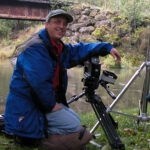Some time ago, I was a filmmaker. Honestly, I wasn’t especially good at it. I wasn’t bad, just OK. However, while I enjoyed the work, using my checkbook balance as a metric, I wasn’t good enough at it to make a living. Because of that, I’m a technical writer.
Filmmaking, however, taught me a lot about technical writing, so I thought I’d share a few of the lessons I learned.
A high-quality film is not the same as a good film
I’m sure you can recall a film that was awful. It could have had excellent lighting, exposure, audio, soundtrack, etc. but you still wonder how you’ll ever get back those 90 minutes of your life. There are many excellent technicians in the film industry who produce technically high-quality material. And yet, somehow all that high-quality material results in a film that is painful to watch endure.
What I learned was that ALL the elements of a film must work towards the goal of telling the story or the film doesn’t work. It’s surprisingly binary. Just being good in a few categories is rarely enough to carry a film.
Except for the story, being good in one aspect rarely makes up for being bad in another. I was a filmmaker before YouTube and home-made videos–around the time reality shows started becoming popular. The importance of story over technical quality (caveat: the audio must always be acceptable) was clear. Since then, what you see trending on YouTube should convince you that story is still king.
With technical docs, I see a lot of concern over “technical” quality, such as spelling, language, vocabulary, and bugs fixed. I’m not saying these elements aren’t important. But, if you’re not telling your audience what they want to know, how well it’s spelled isn’t going to matter. I was surprised to see a similar discount of technical quality in my dissertation study (see API reference topic study – summary results). The problem, unfortunately, is that it’s easier to count these technical qualities, so it’s deceptively attractive to equate technical quality with document quality or utility. Technical quality might be a factor in utility, but it’s not a proxy.
Don’t give the audience a reason to leave
A film must tell a story in a way that keeps the audience wanting to know what’s next. Whether the film is a 10-second commercial or a 90-minute feature, crafting a story in such a way is a skill that takes practice and a knowledge of your audience. It’s an aspect of the film that starts with the script and must be supported all the way through production, editing, and release. It’s one of those things that, if not done well, can result in one of the bad examples I referred to in the previous lesson.
How does that apply to tech writing? In technical writing you typically want the reader to find what they’re looking for quickly and not with a lot of suspense. In that case, you want to write so the reader can leave as soon as possible to get back to what they really want to do.
What you want to do in both cases is let the reader know that they’re in the right place, that you have what they’re looking for, and then you must give it to them. Miss any one of those and you’ve lost your audience. In a film, that might be a 90-minute journey. In a technical document it might be a 90-second journey. In my dissertation study, it was a 44-second journey. In any case, the same principle applies.
I also talk about the importance of story in technical writing in What’s your story?
Every film has an audience, but…
People talk about a film “finding its audience.” And, while every film has an audience, that audience might be just the filmmaker. I’ve watched (and made) films that fall into that category. The films with an audience of one are often made without any regard to what other people (that is, your audience) might want to see. I’m not going to deny anyone’s expression; however, if a goal of your expression is to reach a lot of people, you’ll need to know what those people care about and speak to that.
This doesn’t take too much of a stretch to apply this to technical writing. If you don’t provide content your audience is looking for, they won’t be attracted to your content (even if it’s spelled correctly).
It’s harder than it looks
The final nail in the coffin that contains my filmmaking career is that it takes a long time to be good. That’s not unique to filmmaking, but in filmmaking it takes a longer time to earn a decent wage at it (even after you’ve become good at it). I admire those who were, by any measure, good at their craft. However, after working with them, I realized that I couldn’t afford the time it would take to develop my skills to the level where they would reliably pay the rent. I needed to wake up, smell the coffee, and pay the rent.
I don’t have any regrets. As a technical writer, I made a decent salary while I developed my skills and went to school to learn more. So, here I am.

